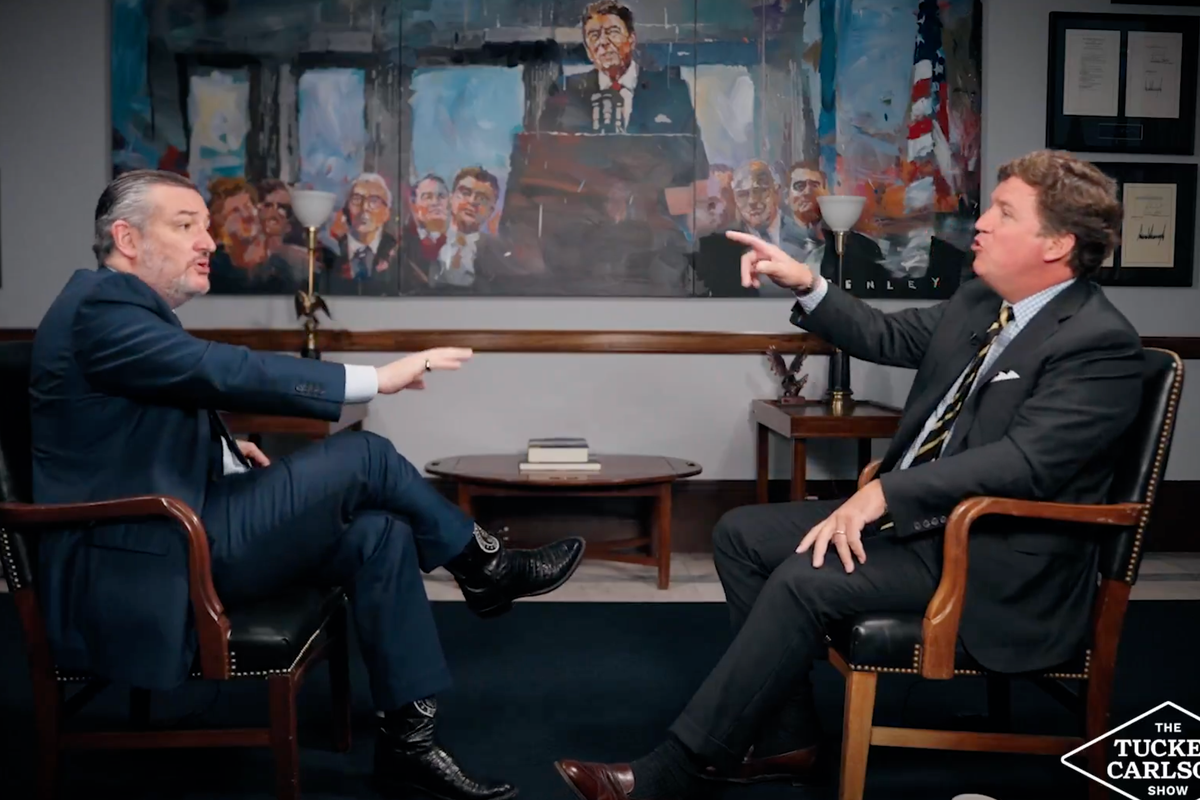The Tension Between U.S. and Iran: A Heated Exchange Between Ted Cruz and Tucker Carlson
In a recent episode of "The Tucker Carlson Show," tensions surrounding U.S.-Iran relations reached a boiling point as host Tucker Carlson grilled Senator Ted Cruz on his understanding of critical facts about Iran. The exchange comes in the wake of heightened military actions in the region, particularly after Israel’s attack on Tehran’s nuclear infrastructure, which has drawn the U.S. deeper into the conflict.
The Context
The fraught relationship between the U.S. and Iran has been intensified by President Trump’s statements. Following Israel’s military actions, Trump claimed on social media, “We now have complete and total control of the skies over Iran.” This escalated the narrative that the U.S. is not merely a spectator but an active participant in the ongoing strife.
The Interview Dynamics
During the interview, Carlson posed a seemingly simple question: “How many people live in Iran?” To which Cruz responded, “I don’t know the population at all.” Carlson pressed further, questioning Cruz’s lack of knowledge about a nation the senator was advocating against. This moment highlighted a significant disconnect between political rhetoric and the foundational knowledge of the issues at hand.
Cruz’s Defense
In response to Carlson’s probing, Cruz questioned whether Carlson knew Iran’s demographic statistics and emphasized that he doesn’t spend his time memorizing population tables. This retort points to a broader narrative that politicians often have to balance between being well-informed and responding to complex geopolitical situations swiftly.
Missile Strikes and Accountability
The interview took a pivotal turn when Cruz acknowledged U.S. involvement with Israel during military strikes, suggesting a cooperative model of warfare. This was evident when he corrected himself mid-sentence, stating, “Right, right, with our help.” Such statements underline the intertwined nature of military strategies between the U.S. and its allies, raising questions about U.S. accountability in these actions.
Carlson’s Perspective
Carlson did not shy away from his stance, questioning the relevance of population estimates as a tactical component in military strategy. His approach reveals an underlying critique of both Cruz and the broader political establishment, accusing them of being out of touch with the realities on the ground.
The Ethnic Composition of Iran
The complexities of Iran’s demographics are further complicated by a lack of recent census data—the last census on language and ethnicity was conducted over three decades ago, in 1976. This presents challenges for understanding the nation’s ethnic mix, which includes Persians and a range of other ethnic groups such as Azerbaijanis and Kurds.
The Implications of U.S. Military Support
Cruz’s admission of U.S. support for military strikes against Iran raises ethical questions about military interventionism. His earlier declaration on social media supporting Trump’s hardline stance on Iran highlights the conflicting narratives present within the American political landscape, especially among members of the GOP.
The Broader Political Climate
The dynamics in this exchange reflect a growing divide within the conservative base regarding foreign policy. Carlson criticized the “warmongers” within the Trump administration, calling for a reevaluation of the U.S. approach to conflicts abroad. His critique of figures like Sean Hannity and others advocating for military action against Iran indicates a call for more cautious engagement rather than aggressive intervention.
A Divided GOP
The discussions surrounding Trump’s foreign policy stance have caused rifts within the Republican Party. While some stalwarts remain loyal to Trump’s agenda, voices like Marjorie Taylor Greene have begun to express doubts, aligning more closely with Carlson’s anti-interventionist thoughts. This schism reflects larger ideological debates about America’s role in global conflicts.
The Call for Accountability
Carlson’s accusations and Cruz’s rebuttals offer a glimpse into the complex relationships between lawmakers, the public, and media figures. As calls intensify for accountability in U.S. foreign policy, the underlying issues concerning the approaches to Iran signify deeper philosophical divides over military action and international relations.
This robust dialogue illustrates the intricate dance of politics, military alliances, and public perception as the U.S. grapples with its position in an increasingly volatile global landscape.


